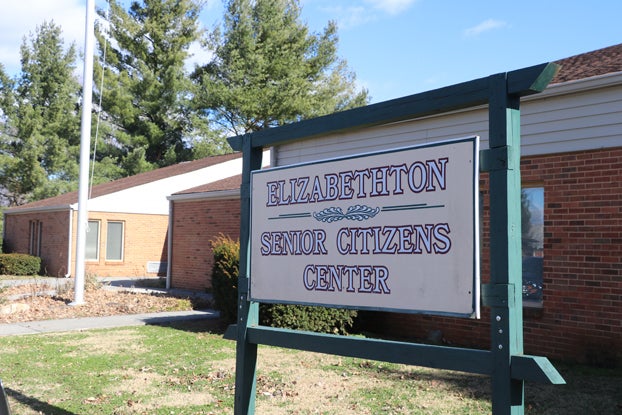County Trustee talks investments, interest rates for county funds
Published 6:32 pm Friday, August 4, 2017
During this year’s county budget process the topic of how the county invests its funds and the interest rate it receives became a matter of conversation.
While the budget was approved by the Carter County Commission last month, some still have questions regarding the county’s investments and interest rates. Carter County Trustee Randal Lewis sat down with the Elizabethton Star this week to try to answer some of the questions.
According to Lewis and Karla Andrews, who serves as the bookkeeper for the Trustee’s Office, there are many regulations in place through state law and Tennessee Comptroller requirements that govern how and where county funds can be invested to bring in interest revenue to the county.
Funds cannot be invested for a term longer than two years, Lewis said. Currently, the Trustee’s Office invests in CDs of different lengths — from three months to two years — so that those investments mature at regular intervals to keep the county’s cash flow at proper operating levels.
Other regulations govern what types of financial institutions county funds can be invested with or held in. County’s are prohibited from dealing with credit unions and by state law are required to only deal with banks which have a branch office located in the State of Tennessee. While not a statutory requirement, Andrews said the State Comptroller’s Office prefers for counties to deal with bank which have their main branch or headquarters in Tennessee.
Deposits and bank investments must also be properly secured under state law.
“It has to either be collateralized or FDIC insured up to 105 percent,” Andrews said.
While the county can invest in CDs, the state investment pool, or government bonds, they are expressly prohibited from investing in anything related to the Stock Market or any investments that have a risk associated with them, Lewis said.
Those are just a few of the many regulations in place to govern how the county invests its funds, Andrews said.
With those restrictions in place, Lewis said he and his staff strive to get the best interest rate possible while making the best investment choices to serve the citizens of Carter County.
The county currently has CDs invested with rates ranging from 0.45 percent to .95 percent. When those CDs were invested in a year to 18 months ago, those were considered by the industry to be good rates. However, as the economy has improved interest rates have seen improvement as well.
“Right now, the checking account is doing better than the CDs,” Lewis said. “Sometimes is flip flops.”
The county maintains a certain level of funding in the checking account in order to pay bills and keep operations going. “In checking the money is available if we need it,” Lewis explained. “In a CD that is locked in.” If the county must cash a CD in before its maturity date the county must pay a penalty based on the term of the CD.
Lewis recently negotiated a new contract with a local bank regarding the county’s checking account, which Lewis said will be beneficial due to the higher interest rate.
“Anything up to $10 Million they give us 1.25 percent and anything over $10 Million they will give us 1.5 percent,” Lewis said.
Those percentages are the minimum guaranteed interest earning on that account. As the Fed Funds Rate (federal interest rate) increases the county can potentially earn a higher interest rate on the checking account.
“The banks in Carter County always give Randal a better rate than he could have gotten at any other bank,” Andrews said. Before joining the Trustee’s Office, Andrews worked in the banking industry for more than 20 years.
Another question that has been asked recently deals with how much revenue the interest on these investments will generate for the county.
The investments coming due in 2017 and 2018 are projected to bring in approximately $285,000 for the county based on the current rates. That number could either be higher or lower when the final tallies are made due to the interest rates rising or falling.
Lewis addressed a comment made recently by Carter County Mayor Leon Humphrey that the county could see $700,000 in new revenue from its investments.
“If we were to get what the Mayor has quoted we would have to get approximately 4.186 percent on $17 Million,” Lewis said. “I wish we could get that.”
Under state law, “prior to making these investments, the county official shall obtain and document at least two proposals from banks or other financial institutions to assure the county receives the highest and best rate of return.” The law also requires Lewis to keep those proposals in the records of his office for a minimum of three years.
Lewis said he has checked with financial institutions and other investment professionals and has not been able to find an investment with an interest rate near 4 percent.
“I just don’t want the people to be misinformed,” Lewis said. “I don’t want people to think we can get a better rate when we can’t.”






